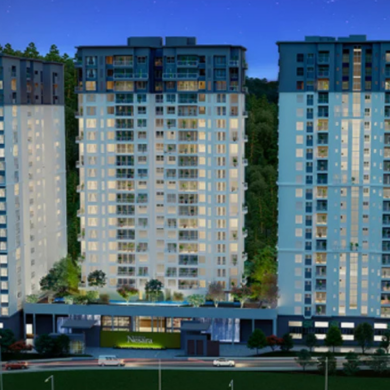Gurgaon vs. Bangalore: Where Should You Invest in Real Estate?
March 27th, 2025

Compare Gurgaon vs Bangalore real estate to determine which city offers better investment returns, infrastructure growth, property price trends, and rental yields for your next property purchase.
Gurgaon and Bangalore rank among India’s leading property markets – driven by robust infrastructure development, strong employment ecosystems, and rising demand for residential and commercial spaces.
Your investment decision should hinge on key factors such as property price trends in Gurgaon and Bangalore, infrastructure development in both cities, and comparative cost of living. Compare Gurgaon vs Bangalore real estate to determine which market offers the best alignment with your financial goals, lifestyle preferences, and potential returns.
Table of Contents
Gurgaon vs. Bangalore: Real Estate Market Trends
It is essential to understand market growth, demand, and price appreciation while comparing both cities. Gurgaon property market has experienced steady annual appreciation of 8-10% – driven by proximity to Delhi, expanding metro connectivity, and accelerated infrastructure development such as Dwarka Expressway and Delhi Mumbai Expressway NE4.
Bangalore property market has recorded slightly higher growth of 10-12% per annum, fuelled by expansion of the technology sector, strong residential investment, and robust rental yields in rapidly growing areas.
Among the best areas to invest in Gurgaon are Golf Course Extension Road, Sohna Road, and Sector 106 near Dwarka Expressway, while Koramangala, Sarjapur Road, and Hosur Road emerge as top investment hotspots in Bangalore. Property price trends indicate that entry‑level prices in Gurgaon property market remain more approachable, whereas Bangalore property market offers higher long‑term capital appreciation potential.
Read More: Benefits of Buying Apartments Near Tech Parks in Bangalore
Gurgaon vs. Bangalore: Commercial Real Estate Opportunities
A comparison of commercial real estate in Gurgaon vs Bangalore highlights distinct strengths in each city’s corporate ecosystem. Gurgaon’s status as a finance, consulting, and services hub supports robust office space demand and rental yields of 7-8%, with established business districts like Cyber City and Udyog Vihar attracting MNCs. Bangalore’s thriving startup culture, concentration of large software companies, and higher average salaries for technology professionals underpin stronger rental yields of 8-9% and sustained office absorption rates.
Infrastructure development in Bangalore continues, with projects such as Namma Metro (multiple lines), Electronic City Phase II, and Peripheral Ring Road; whereas Gurgaon is advancing commercial growth through redevelopment of Sohna Road and expansion of the Golf Course Extension Road corridor. Commercial real estate investment in Bangalore also benefits from higher demand for coworking spaces and Grade A office inventory.
Gurgaon vs. Bangalore: Residential Real Estate Potential
Availability of diverse housing shapes the residential investment landscape in Gurgaon vs Bangalore. The Millennium City offers a balanced mix of luxury gated communities and compact apartments. Golf Course Extension Road and Sohna Road emerge as best areas for real estate investment in Gurgaon.
Residential real estate investment in Bangalore skews towards premium homes in areas such as Koramangala and Sarjapur Road, while North Bangalore has diverse rates. Property price trends in Gurgaon vs Bangalore reveal lower entry‑level pricing in the former, whereas the latter has strong long‑term capital appreciation potential and offers higher rental yields for mid‑segment units.
Gurgaon vs. Bangalore: Infrastructure & Connectivity
Robust metro networks, road connectivity and airport access significantly influence real estate investment in Gurgaon vs Bangalore. Seamless connectivity via Delhi Metro, Dwarka Expressway, NH48, Western Peripheral Expressway, and Indira Gandhi International Airport positively impact life in Gurgaon.
Bangalore’s connectivity is bolstered by two corridors – Outer Ring Road and the upcoming Peripheral Ring Road – apart from the ever-expanding international connectivity of Kempegowda International Airport. Gurgaon vs Bangalore real estate will also be influenced by future connectivity enhancements due to Regional Rapid Transit System (RRTS) in Gurgaon and Bangalore Metro Phase 2 extensions.
Gurgaon vs. Bangalore: Cost of Living & Lifestyle
This financial comparison underscores key differences between Gurgaon vs Bangalore real estate. While the Millennium City offers a slightly lower cost of living for housing and daily expenses, India’s Silicon Valley delivers a more cosmopolitan lifestyle with diverse dining, entertainment and cultural options.
Quality of social infrastructure is high in both cities, with Gurgaon featuring modern shopping malls and wellness centres, and Bangalore known for expansive parks and recreational spaces. Education standards are comparable – both cities host reputed international and national schools; while healthcare infrastructure in Bangalore edges ahead with a larger concentration of multi‑specialty hospitals and research centres.
Gurgaon vs. Bangalore: ROI & Rental Yields Comparison
This analysis provides deep insights into expected performance of your real estate investment in Bangalore vs Gurgaon. Historically, Bangalore property market has delivered higher capital appreciation of 10-12% annually, compared to Gurgaon’s 8-10%. Real estate investment in Gurgaon continues to deliver steady returns, thanks to consistent tenant demand in & around key business districts. Projected returns in both cities remain strong, supported by ongoing infrastructure development and steady demand for residential & commercial spaces.
Rental yields in Gurgaon average 7-8%, driven by corporate tenant demand in business districts – whereas NRI investment in Bangalore and high demand by IT professionals have resulted in slightly higher rental yields of 8-9%. Overall, Gurgaon may present better entry points, while Bangalore provides superior long‑term ROI and rental income potential.
Read More: Why Sector 106 is the Best Place to Live in Gurgaon
Gurgaon vs. Bangalore: Legal & Regulatory Aspects
Developers in both cities adhere to RERA regulations, ensuring transparency in property laws and robust investor protection. Haryana Real Estate Regulatory Authority (HARERA) mandates clear project approvals, timely possession, and dispute‑resolution mechanisms. Karnataka Real Estate Regulatory Authority supports similar safeguards, with streamlined documentation processes and digital registration of sale deeds.
Real estate investment in Bangalore benefits from smooth approvals and strong regulatory transparency, boosting investor confidence. While Gurgaon benefits from proximity to central government offices, Bangalore’s state authorities have introduced e‑governance portals that simplify title verification and NOC procurement.
Gurgaon vs. Bangalore: Which One Is Better for NRI Investors?
Gurgaon and Bangalore are both prime real estate investment destinations for NRIs, each offering unique advantages. Known for high-end infrastructure, proximity to Delhi, and corporate hubs like Cyber City, Gurgaon attracts investors seeking luxury properties. It has a well-established rental market, especially in areas like Golf Course Road and New Gurgaon.
On the other hand, India’s Silicon Valley offers strong IT-driven real estate demand, stable economy, and better liveability. Areas like Panathur, Sarjapur Road, and Electronic City provide exciting investment opportunities with steady rental yields.
While Gurgaon excels in luxury and commercial investments, Bangalore is ideal for long-term stability and rental income. NRIs should choose based on their financial goals – high appreciation in Gurgaon or steady returns in Bangalore.
Conclusion: Gurgaon vs. Bangalore – The Final Verdict
Choosing between Gurgaon and Bangalore real estate hinges on aligning your investment objectives with city‑specific advantages. Gurgaon property market delivers better entry points, dependable rental yields of 7-8%, and strong demand driven by corporate and consulting firms. It is the ideal choice if your priorities are proximity to Delhi, lower initial capital outlay, and steady income generation.
On the other hand, Bangalore property market offers higher long‑term capital appreciation of 10-12% annually, rental yields of 8-9%, and exposure to India’s thriving technology ecosystem – factors that contribute to superior ROI in Gurgaon vs Bangalore real estate comparisons.
If your goal centres on capital growth and you value a dynamic urban lifestyle supported by world‑class healthcare, education, and recreational facilities, Bangalore emerges as the preferred choice. Conversely, if predictable cash flows, cost efficiency, and access to Delhi NCR’s corporate network matter most, Gurgaon may better suit your investment strategy.
Consider your investment horizon, risk appetite, and cash flow requirements – before choosing one of these two high‑potential markets. By weighing property rates against appreciation potential in Gurgaon vs Bangalore real estate, you can confidently determine which city delivers the strongest returns.
FAQs
1. Which city offers better real estate appreciation, Gurgaon or Bangalore?
Bangalore delivers higher real estate appreciation, averaging 10-12% annual price growth compared to Gurgaon’s 8-10%.
2. Which areas in Gurgaon and Bangalore are the best for residential investment?
Gurgaon’s Golf Course Extension Road, Sohna Road, and Sector 106, and Bangalore’s Koramangala, Sarjapur Road, and North Bangalore (Aerospace Park corridor) are the best areas for residential investment.
3. Which city has better rental yields for real estate investors, Gurgaon or Bangalore?
Bangalore offers slightly better rental yields (8-9%) versus Gurgaon (7-8%).
4. How do infrastructure developments in Gurgaon vs Bangalore impact property investments?
Infrastructure developments in Gurgaon – such as Dwarka Expressway, RRTS, and Delhi Mumbai Expressway NE4 – improve connectivity and support steady price appreciation; while Bangalore’s Metro Phase 2, Peripheral Ring Road, and airport upgrades boost demand and property price trends across key areas.
5. Which city has better quality of life and facilities for homebuyers?
Bangalore has better quality of life with greener spaces, world‑class healthcare, and diverse education options; while Gurgaon offers modern shopping avenues, wellness facilities, and proximity to Delhi’s cultural attractions.
6. Is Gurgaon or Bangalore a better option for NRI real estate investment?
Bangalore is better for NRIs seeking higher capital appreciation and rental yields, while Gurgaon appeals to NRIs looking for lower entry costs and dependable rental income.
7. Which city is more affordable for first‑time homebuyers, Gurgaon or Bangalore?
Gurgaon is more affordable than Bangalore for first‑time homebuyers, due to lower entry‑level property prices.
8. Which is a better place to live, Gurgaon or Bangalore?
Bangalore is a better place to live for those valuing a cosmopolitan lifestyle, green environment and superior healthcare; Gurgaon suits those prioritising cost efficiency and proximity to corporate hubs of Delhi NCR.
9. Is Gurgaon good for real estate investment?
Yes, Gurgaon is good for real estate investment, thanks to steady property price trends, attractive rental yields, and proximity to India’s capital region.
10. Is Bangalore a good place to invest in real estate?
Yes, Bangalore is a good place to invest in real estate, due to higher historical appreciation, robust rental yields, and strong demand from the technology sector.







